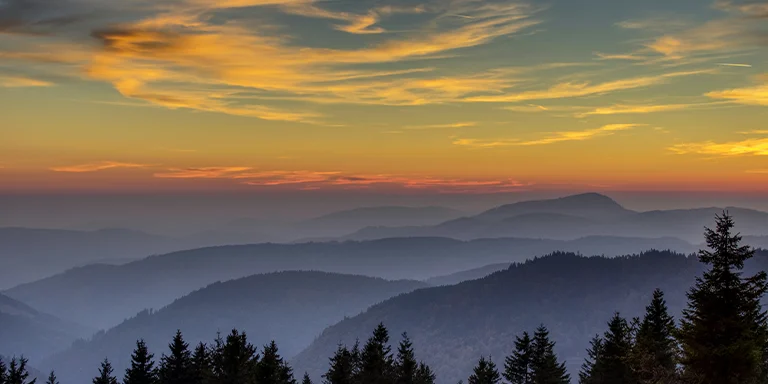

Camping is loads of fun, but achieving a restful night’s sleep outdoors can pose a challenge as we are exposed to the elements and experience unfamiliar temperatures and strange sounds.
However, don’t worry. In this post, we’ll explore essential camping sleeping tips to ensure your nights are comfortable and rejuvenating. Let’s get started.
Getting a good night’s sleep is really important for staying strong and focused during hiking. When you sleep well, your body has a chance to recover, save up energy, and fix your muscles.
Here’s how you should go about it:
Getting a good night’s sleep starts before you even step outside your door:
A well-prepared campsite with the right camping equipment is your ticket to a great night’s sleep. Let’s explore how you can set up your camping spot for the most restful slumber:
If you can’t sleep because of general fear, consider creating a makeshift perimeter around your tent by setting up simple alarms, such as cans strung on a string around the site, that will rattle if disturbed.

The ultimate secret to a restful night’s sleep lies in staying warm and cozy. Trust us, we’ve learned from our mistakes, enduring chilly nights in the tent while eagerly awaiting the morning sun.
Now, let’s explore how to stay comfortable when the temperatures take a dip:
I hope you never have to endure extremely cold nights. I still remember how frightening it was when I experienced such conditions during a camping adventure in Scotland. The temperature dropped to 32 degrees, and I only had my summer sleeping setup at the time.
By using these camping sleeping tips, you’ll be ready to stay warm and comfy during chilly camping nights even if a campfire isn’t an option.
In this comprehensive post, you’ve gained invaluable insights into making your camping nights not only comfortable but truly restful.
From pre-trip preparations and campsite setup to staying warm and cozy in challenging conditions, we’ve covered it all.
With these camping sleeping tips, you’re ready to guarantee a good night’s sleep on your next camping trip. Give it a try—you’ve got nothing to lose.
Some of the best camping hacks for staying warm include wearing layers and bringing extra blankets, using a reflective emergency blanket or space blanket inside your sleeping bag to reflect your body heat back at you, incorporating hand and toe warmers into your sleep system for added warmth, hanging a tarp above your tent to reflect heat from a campfire back down, setting up a portable heater like a propane buddy heater for extra warmth inside your shelter, and boiling water before bed to fill hot water bottles that can be placed inside or outside your sleeping bag to provide sustained heat throughout the night.
Sleeping difficulties while camping often result from a change in environment, physical discomfort from sleeping on uneven terrain, temperature fluctuations, and the sounds of nature. To enhance the camping sleep experience, campers should invest in suitable gear, like warm sleeping bags and comfortable sleeping pads, while also using earplugs to block out noise. Organizing the campsite efficiently, maintaining good sleep hygiene, and adapting to the natural outdoor rhythms can also help improve sleep quality while camping.
Falling asleep quickly in a tent can be achieved by creating a comfortable sleep environment. First, choose a flat and level campsite spot to minimize discomfort. Use a high-quality sleeping bag and pad for insulation and cushioning. Maintain good sleep hygiene by wearing clean sleepwear, practicing relaxation techniques, and minimizing distractions with earplugs or an eye mask. Adjust your tent’s ventilation for optimal airflow, and consider having a light snack before bed to generate internal warmth. Embracing the tranquility of nature and aligning with its natural rhythms can also help you doze off faster in a tent.
For a good night’s sleep while camping, prioritize an insulating sleeping pad with attention to its R-value, and choose a supportive pillow. Sleep in moisture-wicking layers and a quality sleeping bag tailored to the weather. When setting up your tent, opt for flat ground free of rocks and sticks. Block out light and reduce noise with an eye mask and earplugs. Keep warm by wearing a hat and socks, and avoid late-day alcohol or caffeine for optimal relaxation. These essentials contribute to a comfortable and restful camping experience. Be sure to use a camping checklist before heading out to ensure you have all the camping supplies you need.
Opt for hearty and warm options like soups, stews, hot oatmeal, and warm beverages such as herbal teas or hot chocolate. These choices not only offer a sense of comfort but can also contribute to a restful night’s sleep during trips. So don’t forget to bring your camping stove!
Prioritize a secure campsite selection, inform a trusted person of your plans, and carry reliable lighting sources like a headlamp. Set up your tent away from potential hazards, pack an emergency kit with first aid supplies and navigation tools, and consider personal safety items such as a whistle or pepper spray. Stay vigilant, organize your campsite, check the weather forecast, and position your sleeping area strategically for continuous awareness. By following these precautions, you can enhance your safety during solo camping at night.